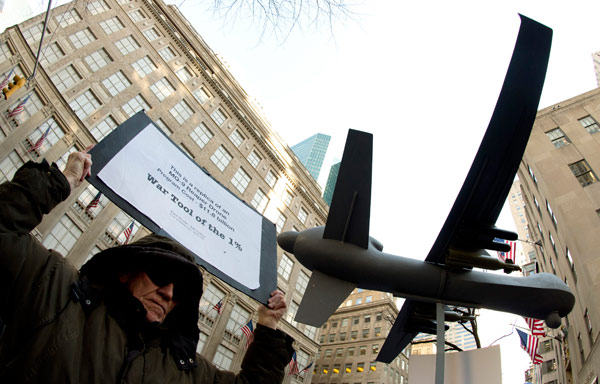Drones take toll on mental health
After nine friends and relatives were killed in a US drone strike four years ago, Mohammed Fahim took tranquilizers to blot out the nightmares.
The 19 year-old is one of a growing number of Pakistanis living in the tribal areas on the Afghan border who has suffered from conditions related to depression, anxiety and other mental health problems because of war.
US drone strikes, fighting between Pakistani Taliban and the army, mass displacement, chronic unemployment and disillusionment are all causing mental suffering on an unprecedented scale in northwest Pakistan, say psychiatrists.
Mohammed lost an eye in the January 2009 attack but the mental scarring has been even more traumatic. The flashbacks are still sudden and powerful.
"I feel like my head is exploding," he says when he remembers how four uncles, a cousin and four neighbors died when they visited for tea in North Waziristan, the most notorious of Pakistan's Taliban and al-Qaida bastions.
"We heard the sound of a missile. A fraction of a second later, they were all dead, their bodies mutilated," said Mohammed, who happened to be in the other room when the missile struck.
Innocent people killed
He insists that no one in his family was associated with Islamist militancy. US officials say the covert drone war in Pakistan involves surgical, pinpointed strikes against known killers that cause few if any civilian casualties.
The London-based Bureau of Investigative Journalism has compiled news reports that indicate US drone strikes have killed up to 3,581 people in Pakistan, including as many as 884 civilians and 197 children since 2004.
"Depression is really high in Waziristan," said doctor Muktar ul-Haq, head of the psychiatry department at the government-run Lady Reading Hospital in Peshawar, the largest city in the northwest.
"There is uncertainty generally in Pakistan but particularly in this area. They are always apprehensive about the drones, about their lives," he said.
While drone attacks do bring patients "episodically" for treatment, he says, residents in Waziristan complain of living in constant fear of drones that patrol in the skies above and the buzzing sound they say they emit.
"The sound alone gives us psychological grief," said Kaleemullah Mehsud, a man in his 30s from Waziristan, who spoke to AFP in Peshawar.
Haq says his worst case was a man who became so aggressive and paranoid that he was admitted to the Lady Reading Hospital.
"He had no predisposition to psychiatric illness," he said.
Mehsud found a SIM card on the family's farmland one morning. Popular belief has it that SIM cards emit signals, guiding the drones to attack.
Haq said that after four hours Mehsud developed "full-blown" psychotic delusions.
There are no statistics about the rise in psychological illness but Mian Iftikhar Hussain, a psychiatrist with a private clinic in Peshawar, believes cases have increased threefold in recent years.


























